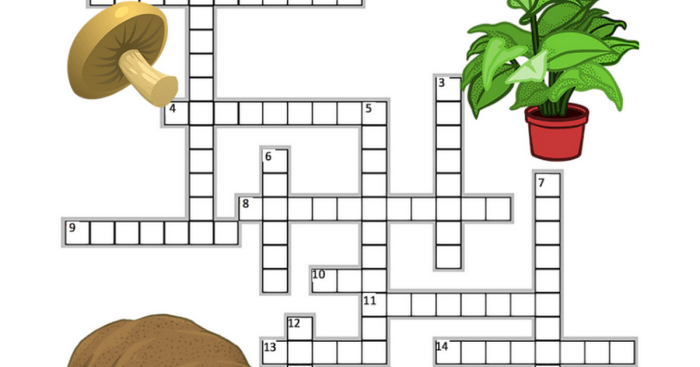Early stage of life crossword – Embark on an engaging crossword puzzle that takes you through the fascinating early stages of human life, from conception to infancy. Explore the physical, cognitive, and emotional transformations that occur during each stage, unraveling the mysteries of human development.
Our crossword puzzle not only tests your knowledge but also provides a comprehensive overview of the early stages of life, making it an educational and entertaining experience for all ages.
Early Stages of Life
The early stages of human life encompass a remarkable period of rapid physical, cognitive, and emotional development. From the moment of conception, a human being embarks on a complex journey of transformation that shapes their future.
Conception and Prenatal Development, Early stage of life crossword
Conception marks the beginning of a new life. The fertilized egg, known as a zygote, undergoes a series of cell divisions and implantations within the mother’s uterus. During the prenatal period, the developing fetus goes through distinct stages of organogenesis, in which various body systems and structures form and mature.
- Embryonic Stage (Weeks 1-8):Rapid cell division and formation of major organ systems, including the heart, brain, and spinal cord.
- Fetal Stage (Weeks 9-38):Continued growth and development of organs, including the limbs, lungs, and digestive system. The fetus becomes increasingly responsive to external stimuli and exhibits reflexes.
Prenatal Development
Prenatal development encompasses the period from conception to birth, a remarkable journey involving the growth and differentiation of a single-celled zygote into a complex, functioning human being. This intricate process involves various stages and is supported by specialized structures within the mother’s body.
Fertilization and Zygote Formation
Prenatal development begins with fertilization, the union of a sperm and an egg. This occurs in the fallopian tube, where the sperm penetrates the egg’s protective layers. The fusion of the two gametes results in the formation of a single-celled zygote, containing a unique combination of genetic material from both parents.
Embryonic and Fetal Development
Following fertilization, the zygote undergoes rapid cell division and differentiation, forming a hollow ball of cells called a blastocyst. The blastocyst implants into the lining of the uterus, initiating embryonic development. During this stage, the three primary germ layers (ectoderm, mesoderm, and endoderm) are established, which will give rise to all tissues and organs in the body.
As development progresses, the embryo transitions into the fetal stage around eight weeks of gestation. During this period, the fetus undergoes significant growth and organ formation. The limbs, facial features, and internal organs develop, and the fetus becomes increasingly recognizable as a human being.
Placenta and Amniotic Fluid
The placenta is a specialized organ that develops in the uterus during pregnancy. It facilitates the exchange of nutrients, oxygen, and waste products between the mother and the fetus. The placenta also produces hormones that support the maintenance of pregnancy.
Surrounding the fetus is the amniotic fluid, a clear liquid that provides a protective cushion and allows for fetal movement. The amniotic fluid also helps regulate fetal temperature and facilitates waste removal.
Infancy: Early Stage Of Life Crossword

Infancy is the period of life from birth to 12 to 18 months. It is a time of rapid physical, cognitive, and social development.During infancy, babies undergo significant physical changes. They grow rapidly, gaining weight and length. Their head circumference increases, and their body proportions change.
They develop motor skills, such as rolling over, sitting up, crawling, and walking.Babies also experience significant cognitive development during infancy. They learn to recognize familiar faces and objects, and they begin to understand language. They develop memory and problem-solving skills, and they start to explore their environment.Infants
also develop socially during infancy. They begin to interact with others, and they form attachments to their caregivers. They learn to communicate their needs and wants, and they begin to develop a sense of self.
Importance of Attachment and Responsive Caregiving
Attachment is a strong emotional bond between a child and their caregiver. It is essential for a child’s healthy development. Responsive caregiving is a type of caregiving that is sensitive to a child’s needs and that promotes attachment.Responsive caregiving has many benefits for children.
It helps them to develop a secure attachment, which is associated with a number of positive outcomes, including:* Better cognitive and social development
- Higher self-esteem
- Less anxiety and depression
- Improved physical health
Toddlerhood
Toddlerhood, the period from 1 to 3 years of age, is a time of rapid physical, cognitive, and social development. Toddlers are eager to explore their surroundings and learn new things, and they are constantly developing new skills.
One of the most important milestones of toddlerhood is the development of language. Toddlers begin to understand and use language at a rapid pace, and they are able to communicate their needs and wants more effectively. They also begin to develop a sense of self-awareness and become more independent.
Motor Skills
Toddlers’ motor skills also develop rapidly during this time. They learn to walk, run, and climb, and they become more coordinated in their movements. They also begin to develop fine motor skills, such as using their hands to build with blocks or draw with crayons.
Play and Socialization
Play is an important part of toddlerhood. Toddlers learn through play, and it helps them to develop their imagination, creativity, and social skills. Toddlers also begin to interact more with other children during this time, and they learn how to share, cooperate, and resolve conflicts.
Early stages of life can be a time of great growth and discovery. One way to explore this topic further is through the “truth poem by Nikki Grimes” here . This poem speaks to the importance of honesty and self-discovery, themes that are also relevant to the early stages of life.
The poem can serve as a starting point for further reflection on the challenges and opportunities that come with growing up.
Preschool Years

The preschool years, ranging from ages 3 to 5, are a crucial period of rapid cognitive, social, and emotional development. During this time, children experience significant advancements in their language skills, problem-solving abilities, and social interactions.
Cognitive Development
Preschoolers demonstrate remarkable cognitive growth, exhibiting an increased capacity for problem-solving, critical thinking, and creativity. They begin to use logical reasoning and develop an understanding of cause and effect relationships. Their imaginations soar as they engage in imaginative play and storytelling.
Social Development
Social development is equally significant during the preschool years. Children learn to interact with peers and adults, developing essential social skills such as cooperation, sharing, and empathy. They form friendships and establish their place within social groups.
Emotional Development
Preschoolers experience a wide range of emotions and begin to develop emotional regulation skills. They learn to identify and express their feelings appropriately, managing their impulses and developing coping mechanisms. They also develop a sense of self-awareness and self-esteem.
Importance of Early Education and Play-Based Learning
Early education and play-based learning play a vital role in supporting the development of preschoolers. Preschool programs provide a stimulating environment where children can engage in hands-on activities, foster their curiosity, and develop essential cognitive, social, and emotional skills. Play-based learning encourages creativity, problem-solving, and social interaction, while promoting physical and emotional well-being.
Transition to Kindergarten
The transition to kindergarten can be a significant milestone for preschoolers. It involves adjusting to a new environment, meeting new people, and following structured routines. Some children may experience anxiety or separation issues during this transition. However, with proper support from parents and educators, children can successfully navigate this change and continue their developmental journey.
Key Questions Answered
What are the key milestones of infancy?
Infancy is characterized by rapid physical, cognitive, and social development. Key milestones include rolling over, sitting up, crawling, walking, and speaking their first words.
What is the importance of attachment in early childhood?
Attachment is a strong emotional bond between a child and their caregiver. It provides a sense of security and promotes healthy social and emotional development.
What are the challenges of toddlerhood?
Toddlerhood is a time of rapid growth and change, which can bring challenges such as tantrums, picky eating, and sleep disturbances.